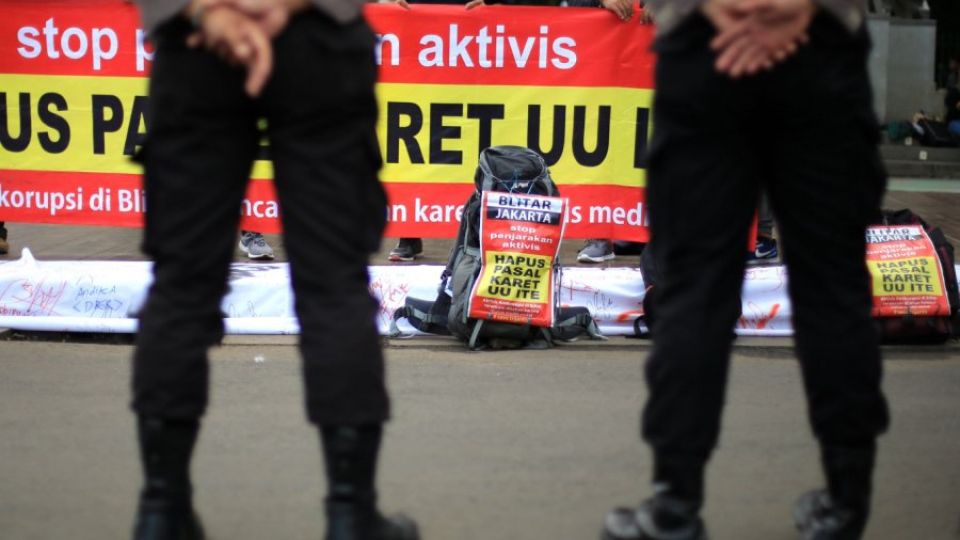July 5, 2023
JAKARTA – Lawmakers are trying to water down a number of problematic provisions in the 2016 Electronic Information and Transactions (ITE) Law that have often been used to criminalize online critics.
Members of House of Representatives Commission I overseeing communications and information affairs, and the government, are still deliberating the latest revision to the law at the behest of President Joko “Jokowi” Widodo last year, following a series of public protests over the prevailing draconian provisions. The articles include those regulating online defamation, obscenity and hate speech on the internet.
Two hearing sessions were held on Monday and Tuesday to discuss ways to bring them in line with the new, more moderate Criminal Code, which was enacted earlier this year and also regulates some articles in question.
“We want to prevent a repeat of the same problem [of the overly used articles to criminalize critics]. Why should we revise the law if we do not solve the problem?” Commission I member Dave Laksono of the Golkar Party said on the sidelines of Monday’s session.
Dave stopped short of providing further details on the ongoing discussions but said he expected the deliberation at the Commission I to be completed during this sitting session before lawmakers go into recess on July 15. The revision, however, would still need to be passed by the House in a plenary session.
Commission I member Rizki Natakusumah of the Democratic Party said policymakers are attempting to provide clearer provisions to prevent “multiple interpretations” on how to enforce the law or on what constitutes a crime, “as has occurred under the existing 2016 law”.
The proposal of the limited amendment of the ITE law was submitted by the government to the House in December 2021, but the House only started its deliberation in April of this year because policymakers preferred to prioritize deliberating the new privacy law. The Personal Data Protection Law was eventually passed late last year, marking the first time Indonesia introduced a privacy law.
Prior to the plan to revise the ITE law, the government had attempted to end the criminalization of online speech by issuing guidelines for interpreting the law.
A joint decree signed by the police, the Attorney General and the communications and information minister in mid-2021 stipulates that criminal charges for online defamation may only be brought against people who intended to harm another’s reputation with their statements and that simply stating opinions or facts was not grounds for prosecution.
In a circular issued earlier the same year, National Police chief Gen. Listyo Sigit Prabowo orders police personnel to use a “restorative justice” approach in enforcing the cyberlaw. However, this approach only applies to hate speech or discrimination against certain groups, races and religions that may incite public uproar.
Also in 2021, President Jokowi said the ITE law and its vague provisions were “the source” of the problem.
A study by the Southeast Asia Freedom of Expression Network (SAFEnet) found that 2022 was the worst year for freedom of expression in nine years, based on the high number of cases against critics of the government and state institutions.


